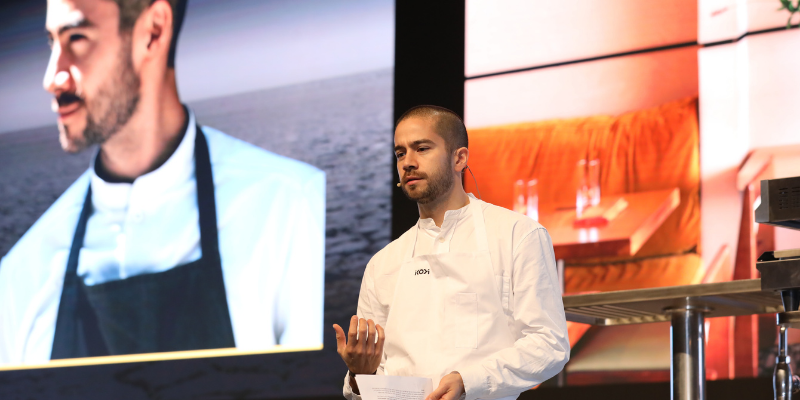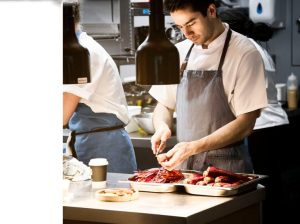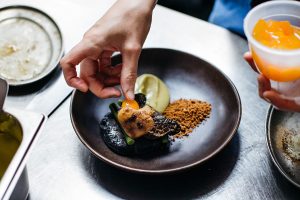


Jeremy Chan was born in northwest England but spent his childhood traveling across Europe, the United States and Hong Kong. Self-taught to speak six languages fluently as a teenager, Chan is majoring in Philosophy and Language Theory at Princeton University. Adding Persian to the languages he speaks here, the chief starts his master’s degree in a renewable energy investment company after graduating. But in 2011, he sips from the dizzying elixir of gastronomy; He gives up his finance career completely and turns to the professional kitchen. The story that took him to Michelin begins right here.
“When I’m interested in something, I want to know everything about it,” he explains.
Returning to London from Spain, Chan quits his job and connects with chefs all over the city. Starting in Hibiscus; During this period, when he has no culinary experience, he learns a lot at Claude Bosi’s two-Michelin-starred restaurant. Then Jeremy, who cooks in smaller restaurants and brasseries in London, moves on to Noma. His journey in Noma takes three months; After spending time at Dinner by Heston, he decides to open his own restaurant.
In May 2015, Jeremy decides to open a restaurant with his best friend and business partner, Iré Hassan-Odukale, so they open Ikoyi in July 2017.

Ikoyi: Combination of Warmth and Umami
Jeremy Chan’s restaurant, Ikoyi, builds its cuisine around British micro-seasonalism: vegetables that have been grown slowly, with care and patience to achieve the best flavor, fish sustainably caught and local aged beef. Ikoyi respects the true nature of the ingredients. brings flavor to the fore. Its menu has been based on an extensive collection of spices sourced from West Africa since its opening.
Ikoyi received its first Michelin star in 2018. The supervisors commented on the restaurant: “Two owners, who have been friends since childhood, have put together a home-grown cuisine, animated with flavors from West Africa.” Ikoyi continued to grow and evolve; It entered the Great Britain and Ireland Michelin Guide and earned its second star. Chan, who has recently released his cookery book “Ikoyi,” described his book with these sentences: “I wrote this book for anyone who is curious about our thoughts on production and aesthetics as the creative impetus behind our dishes and the center of the Ikoyi experience. The book includes my stories about the importance of spice as well as personal essays on the joys and challenges Iré and I went through in creating our restaurant.”

The VII we held in November last year. Jeremy Chan, who also took part in our International Gastromasa Gastronomy Conference, talked about his understanding of cooking and the working style he adopted at his restaurant Ikoyi in his presentation:
“I’m half Canadian, half Chinese. So it’s easier for me to mix different cultures. People don’t think of Ikoyi as a steakhouse. They think it’s creative and spice-based, but meat is the primary ingredient. As a small business, I can’t mix and match products. Meat a day, I use pork one day or chicken the next. I need to work with focused, customized farmers. Our restaurant’s meat selection is very similar to the winemakers’ winemaking. People want the animals to live outside. The farmer we work with Philip Warren’s business is located in the Southwest. Because our different we have cattle breeds. You can think of it as different types of grapes, aromas from which wine is produced. Different grapes offer different production techniques and aromas, resulting in specific wines. This happens when a carcass comes to our kitchen. It will never be the same, but it will be perfect every time. Talking about accepting the beauty of nature It’s not about trying to look at materials or forcing them to turn into things. It is necessary to accept the perfect system where the materials come from, because it is natural.”